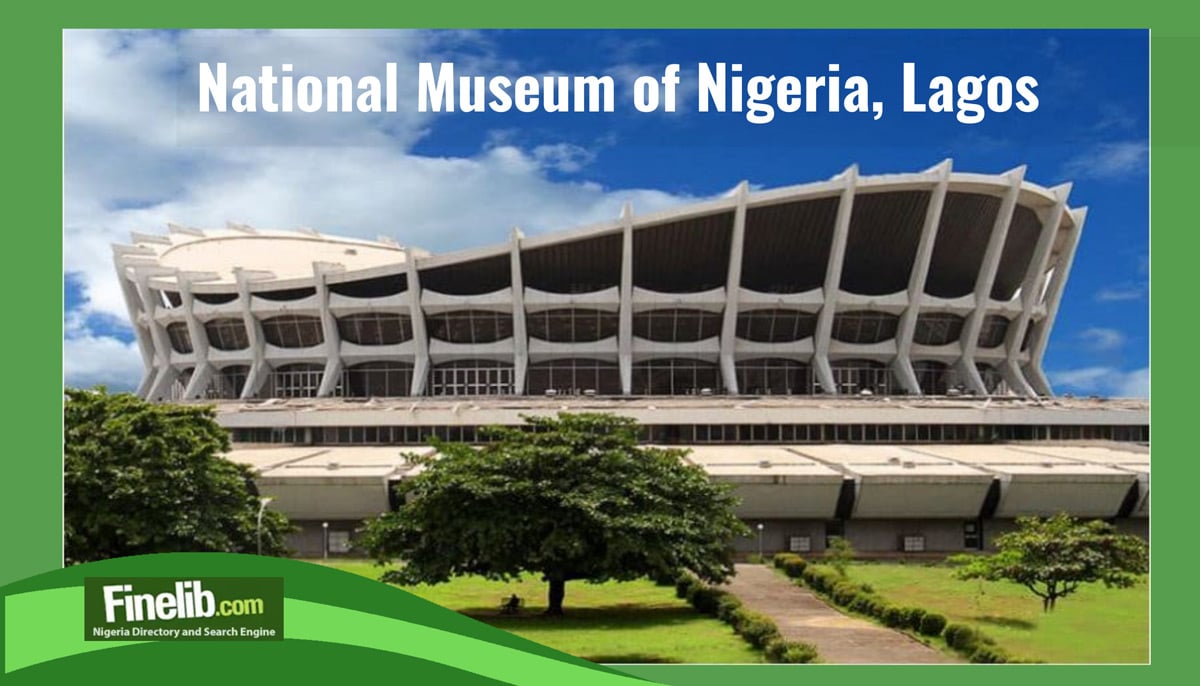Attractions and History of National Museum of Nigeria, Lagos

If you are curious about Nigeria’s rich history and want to see it up close, the National Museum of Nigeria in Lagos is the place to be. Nestled in the heart of Onikan, Lagos Island, this museum is like a treasure chest bursting with the stories of our ancestors.
Established in 1957, it stands as one of Naija’s oldest museums, offering a proper glimpse into our culture, art, and way of life from way back when. Whether you are a history buff, a student, or just someone who loves a good gist, this spot has something to wow you. Let’s dive into its history, attractions, and why it is a must visit for anyone who calls Nigeria home or wants to know us better.
A Bit of History
The National Museum in Lagos did not just pop up out of nowhere, it has a solid backstory. It was founded in 1957 by a British archaeologist named Kenneth Murray, right before Nigeria shook off colonial rule in 1960.
Murray was a man on a mission, travelling across Naija to gather artefacts that told our story, from masks to carvings. His goal? To keep our heritage safe and show the world that Nigeria’s past was no joke.
The museum opened its doors just in time to celebrate our independence, starting with a collection that has grown to over 47000 pieces today. Managed by the National Commission for Museums and Monuments, it is a place where Naija’s history comes alive, piece by piece.
Where It Stands
You will find the museum smack in the middle of Onikan, a busy part of Lagos Island. It is surrounded by the hustle and bustle of Lagos life, with landmarks like Tafawa Balewa Square and the Muson Centre nearby.
Getting there is no biggie if you are in Lagos; you can now follow the new blue train terminal and stop right in front of the National Theatre. You can just hop on a danfo or keke from places like CMS or Victoria Island, and you are sorted. The building itself is a sturdy, no nonsense structure, though it could use a bit of shine these days.
Inside, it is a different world, quiet and full of wonders that take you back centuries. For visitors from outside Lagos, it is a straight shot from the airport or motor parks, making it an easy stop on your Naija adventure.
What You Will See
This museum is not just a building, it is a proper showcase of Naija’s soul. Here is the gist of what you can expect when you step inside:
- Nok Terracotta Heads
These clay figures from Plateau State are some of the oldest finds, dating back over 2500 years. The star is the Jemaa Head, a smooth, big eyed sculpture from the Nok culture. Our ancestors moulded these with serious skill, showing off their early flair for art and even ironwork. They are a big flex of Naija’s ancient creativity.
- Benin Bronzes
Straight from the Benin Kingdom in Edo State, these bronze plaques and statues scream royalty. Made centuries ago, they tell tales of kings, warriors, and daily life. They are so fine that some got nabbed by colonialists, but the ones here remind us of Benin’s golden days. Check them out and feel the weight of that history.
- Igbo Ukwu Artefacts
From Anambra State, these bronze pots and beads, around 1100 years old, show off eastern Naija’s craft game. The Igbo Ukwu people were melting metal into fancy shapes long before many places caught up. It is pure evidence of our ancestors’ hustle and talent.
- Yoruba Masks and Costumes
The Yoruba section is a vibe, with Egungun costumes and Gelede masks that dance through our traditions. These wooden carvings, painted bright, were used in festivals and rituals. They bring the past to life, showing how our people celebrated and connected with the spirit world.
- Cycle of Life Exhibition
This display walks you through a Nigerian’s life, from birth to the afterlife. You will see a Yoruba clay pot for burying umbilical cords, symbols of new beginnings, and other items that mark big moments. It is a simple but deep look at how we live and honour our journey.
- Murtala Mohammed’s Car
Parked behind glass is the black Mercedes Benz where General Murtala Mohammed was assassinated in 1976. Bullet holes and all, it is a stark piece of modern history, reminding us of a leader who shook things up before his time got cut short.
- Traditional Instruments
Fancy some old school jams? The museum has sansas, flutes, and drums from across Naija. These instruments, carved from wood or stretched with hides, were the soundtrack of our past. They show how music has always been part of our blood.
- Textiles and Crafts
From Akwete cloth to batik fabrics, the textile corner is a feast for the eyes. These weaves from places like Okene and Bida tell stories of trade and skill. You will also spot crafts like beads and wooden figures, small but mighty pieces of our culture.
Why It Draws a Crowd
The National Museum is a magnet for all kinds of people. Students come to soak up history for school projects, while families roll in to connect with their roots. Tourists from abroad drop by to snap pics and learn what makes Naija tick.
During festivals or holidays like Independence Day, it gets extra lively with events and cultural shows. Locals love it too, popping in to see their heritage laid out in front of them. It is not just about looking, it is about feeling that Naija pride swell up inside you.
How It All Comes Together
Ever wondered how these treasures end up here? Archaeologists like Murray went digging across Nigeria, from villages to riverbanks, pulling out history bit by bit. They work with locals who know the land, using tools and tech to date every find.
Once unearthed, these items get cleaned, studied, and displayed with care. It is a slow grind, but it keeps our past safe from fading away. The museum’s team also runs workshops and tours, making sure everyone gets the full gist of what they are seeing.
Why It Matters to Naija
This museum is more than a collection, it is a mirror of who we are. Those Nok heads show we were innovators way back. The Benin bronzes prove we had empires that shook the continent. Every artefact ties us to our tribes, Yoruba, Igbo, Hausa, and more, while shouting that we are one Naija.
It brings in naira too, with tourists spending cash to see our stuff. Beyond that, it inspires us, maybe you will craft something or tell a story because of what you see here. Our history is our backbone, and this place keeps it standing tall.
Practical Tips for Visiting
Planning a trip? It is open daily from 9 a.m. to 5 p.m., though times can shift, so check ahead. Entry is cheap, just 500 naira for kids, 1000 for Nigerian adults, and 1500 for foreigners, a small price for a big experience. Bring cash, card machines are not always reliable in Lagos.
Wear comfy shoes, you will be walking a bit, and snap pics to share the vibe (just ask first). If you want the full scoop, grab a guide, they will break it all down for you. Public transport like danfo or okada drops you close, or park if you are driving. It is Lagos, so expect some hustle, but the museum is a calm oasis worth the effort.
Challenges and Hopes
Not everything is perfect, though. The building is getting old, with leaks and creaks that need fixing. Some artefacts sit in dim corners, needing better light and care. Funding can be tight, and looters have snatched pieces over the years, selling them abroad.
But there is hope, new leaders like Olugbile Holloway are pushing to spruce things up, digitize collections, and bring back stolen goods. If we all support it, this museum could shine even brighter, telling our story to the world.
The Bigger Picture
The National Museum is a living link between yesterday and tomorrow. It proves our ancestors were artists, rulers, and thinkers who shaped this land. Each pot, mask, or bronze piece is a chapter of Naija’s journey, tying us to our roots while pushing us forward.
In 2025, as Nigeria grows, this place keeps our heritage breathing, showing we are not just here, we have been here, doing big things. It is a global flex too, letting everyone know Naija’s past is as rich as its present.
Final Thoughts
The National Museum of Nigeria in Lagos is more than a stop on a tour, it is a deep dive into what makes us Naija. From the ancient Nok heads to Murtala’s bullet riddled car, it tells a story that is ours to own.
Whether you are Lagos born or just passing through, this place calls you to see, feel, and carry our history forward. So next time you are in town, do not sleep on it, swing by Onikan, pay your small change, and step into Nigeria’s past. You will leave with a fuller heart and a sharper sense of who we are. Naija’s story is too sweet to miss, and this museum serves it up fresh!




